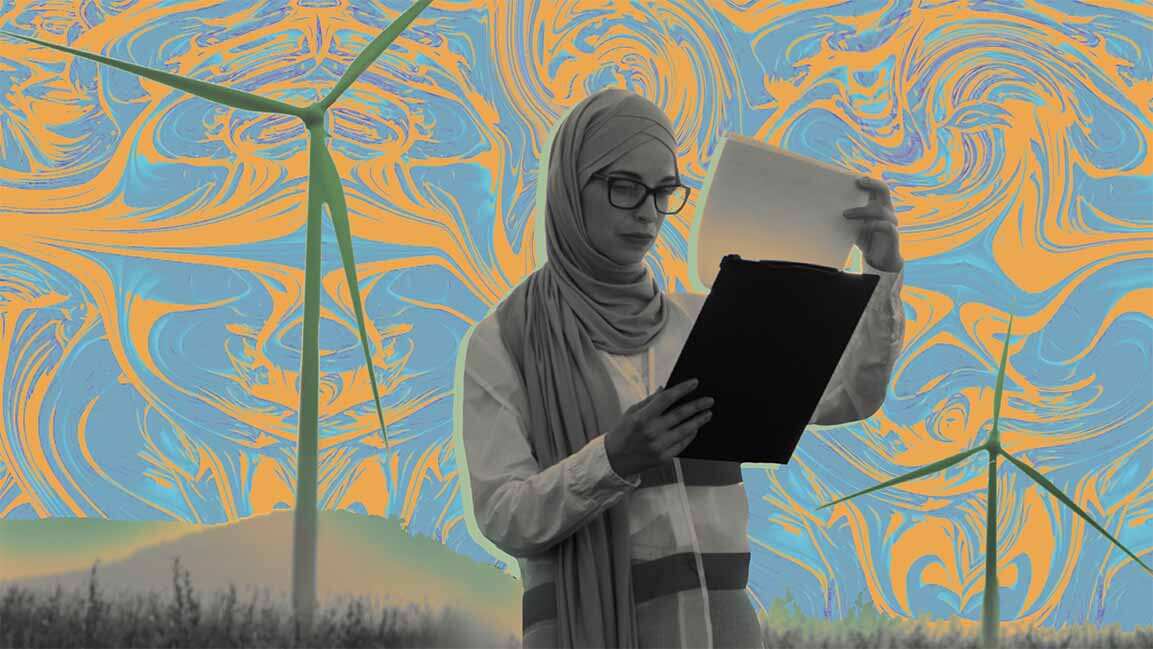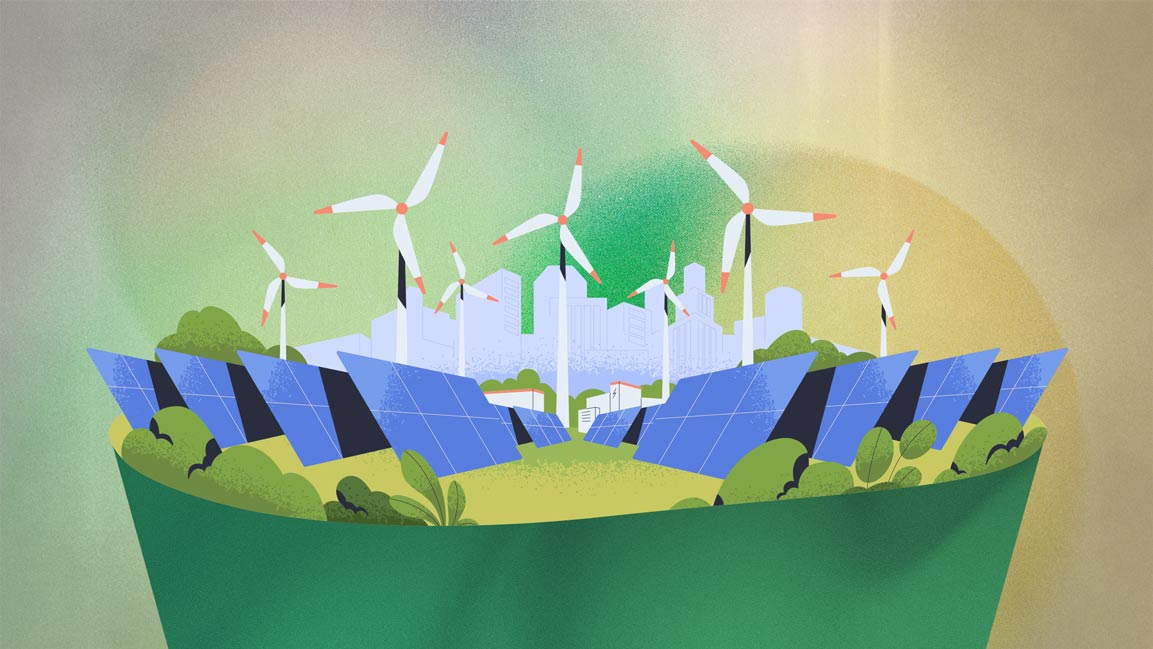- | 9:00 am
Gender diversity is essential for meaningful decisions at COP27
Experts say COP27 represents an opportunity to rectify the lack of women representation. An inclusive decision-making position would be more effective and sustainable.

If you have watched British-Egyptian playwright Sabrina Mahfouz’s A History of Water in the Middle East show, you’d know it’s far closer to reality than expected. Retelling the Middle East’s water stresses, the characters discuss sexual violence against women in Yemen who cannot even wash and see their children die from water-borne diseases such as cholera.
Due to prolonged droughts, many rural villages in Yemen and Iraq do not have a water source close to their communities. The carting of water is done by women; many carry a 20-liter water container on their backs a long way from the village. Traveling further from home to find water often means they or their daughters miss out on education.
A similar problem persists in Syria and Iraq, where record droughts drove farming families into urban centers, exacerbating social and political tensions. Severe droughts caused by climate change have worsened conflicts in the region, forcing people to flee.
WOMEN ARE THE WORST HIT
Water stress is a planet-wide crisis affecting all humans. But not all humans are affected equally. The most vulnerable suffer the most, and they are women. From Sana’a to Baghdad, water is a weapon of war that deepens the region’s conflict, with women the worst hit.
“The poorest are the most vulnerable to climate change, and women make up a significant percentage of the poorest while often responsible for feeding their families,” says Heather McGeory, Global Lead, Climate and Sustainability at APCO Impact.
Since women are on the front lines of climate change, their perspectives on the challenges and solutions are a clear argument for more participation of women at the COP27 summit in Sharm el-Sheikh in Egypt.
The summit has dedicated November 14 as The Gender Day, an unofficial side event for discussions on women and climate change. Experts say women should be integrated into all discussions during COP27 and not relegated to a day.
MEANINGFUL PARTICIPATION OF WOMEN
“Women should play a greater role at the COP27 summit. Addressing climate change through gender-responsive policies and action is integral to driving sustainable development goals and gender equality,” says Samar Alshorafa, founding CEO of She is Arab.
“It is unfortunate that climate change isn’t discussed equally by default and that a day has to be dedicated to discuss how to mitigate its effects on women.”
Demanding that women must be enabled to play a greater role at the COP27 summit, as the needs of women and girls are being overlooked amid the global climate crisis, McGeory says diverse groups of leaders tend to make better decisions.
“Last year at COP26, the official delegation was 37% female, and when you look at delegation leadership, that number drops to 26% female leadership. At COP27, we would do well to ensure that delegations are focusing on bringing greater gender diversity to the negotiations and highlighting the ideas and contributions of those women.”
Experts say COP27 must deliver a pathway to limiting global heating and help women, who are the worst affected, build resilience to the impacts of the climate crisis.
“As the climate continues to reach extremes, ecosystems will degrade, resulting in increased burdens on women. This can range from limiting opportunities for generating an income and making it harder to access education to reduced access to energy, water, and sanitation facilities and increased exposure to violence,” says Jessica Robinson, MENA Sustainable Finance Leader at EY-Parthenon. “The consequences are widespread and systemic.”
Climate change has social, economic, and political consequences and women are the most vulnerable to its adverse effects. The UN estimated that 80% of those displaced by climate change are women, yet there were few at negotiation tables at COP26 in Glasgow.
“The COP27 represents an opportunity to rectify the lack of representation. The more inclusive such gatherings are, especially in leadership and decision-making positions, the more effective and sustainable results will be,” says Alshorafa.
BEING IN A LEADERSHIP ROLE
One of the key outcomes of the Glasgow Climate Pact was to increase meaningful and equal participation of women in climate action and to ensure gender-responsive means of implementation, which are vital for achieving climate goals.
However, how we do that is still developing. “To promote women’s leadership and equity in climate action is to focus less on the CEOs and focus more on bringing experts who can speak to issues with authority,” says McGeory.
“We should be putting women in all political spaces and making conscious decisions to put women forward in leadership roles. Most importantly, there should be no ‘man-els’ at the summit,” she adds.
The perspectives that women bring to the conversation are valuable, and studies show the impact women have on all areas of society.
“By ensuring the meaningful participation of women with diverse backgrounds in relevant decision-making processes, particularly in positions of political authority, have been shown to lower national carbon footprints,” says Marketa Simkova, Partner and Head of People and Change at KPMG.
The insights from women’s different experiences of climate challenges can enhance policy decisions; however, men dominate decision-making at the climate summit.
Diversity and inclusiveness are essential to address how to transition economies towards a low-carbon future and how to protect the needs of vulnerable communities, says Robinson.
“More and more women are leading climate solutions – whether this is through building resilience, scaling environmental protection, or finding innovative ways to cut emissions.”
Climate change impacts women differently because of systemic inequalities. In many countries, women are responsible for gathering water and food, and they often suffer the most when shortages are worsened by the climate crisis. According to the UN, women constitute most of the world’s poor and are often directly dependent on natural resources as their main source of food and income.
Other factors include the impact of food security on women because of the risk of malnutrition during pregnancy and feeding. Implications of climate change, including natural disasters, air pollution, and extreme weather events, take a toll on women more and are seen to cause higher fatalities.
Women usually lack land rights, so they are more likely to be displaced in climate disasters. Studies have also found the climate crisis worsens violence against women.
“It is also for these reasons we need to ensure that female leaders have equal and visible representation at climate negotiations, including COP27 and COP28. Our collective success depends on ensuring that all perspectives are represented during these global negotiations,” adds Robinson.
POSITIVE AGENTS OF CHANGE
“Interestingly, over 50% of the improvement in food security in developing countries came from promoting women empowerment programs in the last decade. This tells that women have a hand in being a force of change,” says Simkova.
Experts say women and girls need to be equipped using every possible tool, but primarily through education; raising awareness plays a pivotal role in addressing climate change. They need to understand what is happening in their respective countries and communities, how they can be involved, and what they can do to make better decisions and work towards a brighter and greener future for their communities.
“Women are positive agents of change. They are 50% of the world’s population, and their lack of representation debilitates climate action,” says Alshorafa. “Just as we say when it comes to women’s economic inclusion and how there’s an opportunity cost for the lack of it, and how it negatively affects a country’s GDP, the same applies to climate change. There is a positive correlation between climate change and gender inequality.”
Global warming has negatively affected women’s and girls’ health, increased violence against them, and influenced their access to food, water, security, and basic human rights at times.
“It’s important to empower women to drive climate change; help them shape the transition to a low-carbon economy through the promotion of equal rights and opportunities in agriculture; strengthening land rights; ensuring access to finance and technology; improving working conditions,” says Simkova.
Investing with a gender lens — the practice of investing for financial return while also considering the benefits to women and girls — brings multiple benefits on many levels, according to Robinson. “Integrating gender into investment decision-making improves economic opportunities and contributes to securing the social well-being of women and girls.”
National economic growth plans that take into consideration gender inequality will bring significant returns and positively impact all of society.
“The more we support innovation driven by women leaders, the better. The MENA region faces climate change challenges, and women must be included at the core of designing and building the future – one that is sustainable and just,” adds Robinson.
Echoing the same sentiment, Alshorafa says for more inclusive environmental, social and economic policymaking, more women must be present at the top. “Their contributions and leadership would have transformative results on climate action.”
When climate strategy is shaped at COP 27, governance bodies must take deliberate action to truly ensure a balance of power to represent the populations they serve. More women at the negotiation table would lead to better outcomes for people and the planet.
“Gender equity to address climate change is critical. Any pressing issue that affects the entire world’s population and our global economy needs women -– at parity with men -– to collectively make those policy decisions,” says McGeory.







































